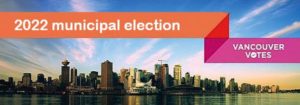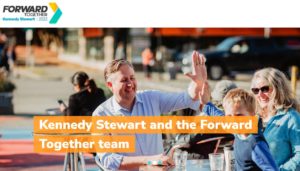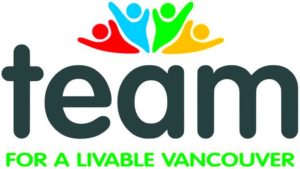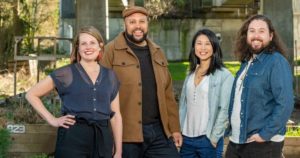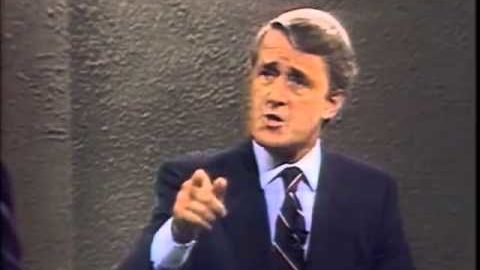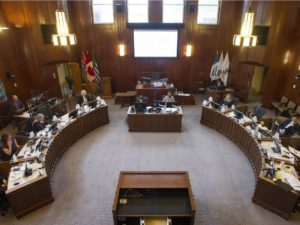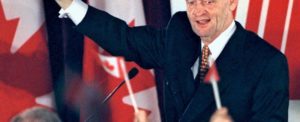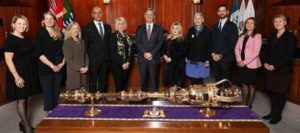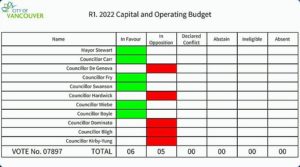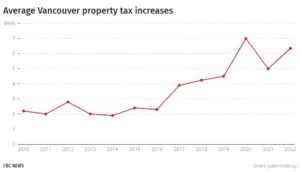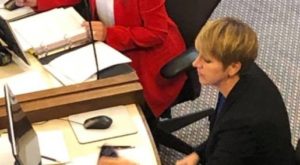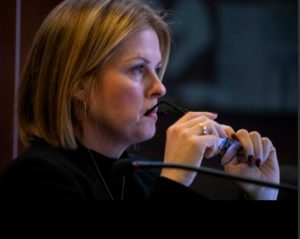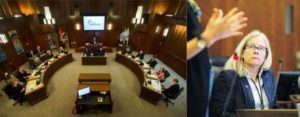In 2022, there are a record five serious-minded candidates intent on occupying the Mayor’s office following the October 15th Vancouver municipal election.
One of these stalwart persons of character and intent who would lead is …
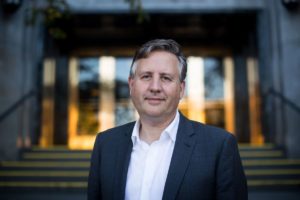
Edward Charles Kennedy Stewart (born November 8, 1966), who has sat as Vancouver’s Mayor since being elected to office in a close fought race in 2018.
Recently, Mayoral candidate rival and current sitting Vancouver City Councillor Colleen Hardwick, was asked to say something nice about Mr. Stewart, for an article to be published later this month. Ms. Hardwick’s response, “He once played bass in a band.” Which, if you come right down to it, pretty much encapsulates Mayor Stewart’s contribution to the life and politics of his adopted (he was born in Halifax) home town of Vancouver, over the course of the past, almost, four years.
In recent days, VanRamblings has referred to Mr. Stewart as hapless. But a more accurate description of his time as Mayor would be the following word …
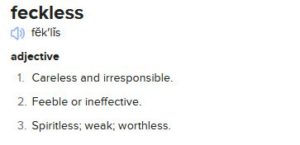
Indeed, for much of the past four years, Mr. Stewart has proved an in absentia Mayor, rarely if ever around, absent from the public eye for much of the pandemic — except when he was whining to the press about how “Vancouver needs more money, the federal and provincial governments have to help us” … with, all the while, OneCity Councillor Christine Boyle and Green Councillor, Adriane Carr having gone rogue, demanding a 15% property tax increase, because “the pandemic presents us with a golden opportunity to address our climate emergency” … with nary a contrary word of disagreement heard from Mr. Stewart.
Where other Canadian mayors — think Don Iveson in Edmonton, Naheed Nenshi in Calgary, John Tory in Toronto — pulled their respective Councils together to forward the cause of the citizens they’d been elected to represent, Mayors who not only acted like but were true, red-blooded statesmen in a time of crisis, Vancouver Mayor Kennedy Stewart — lacking any evident leadership skills or abilties — allowed a fractious Vancouver City Council to go hither, thither and yon pursuing their own political agendas, far too often at the expense of the public interest.
Stewart: unavailable to the press — a lesson he seems to have learned from former Conservative Prime Minister, Stephen Harper — given over to near hourly meetings with various well-heeled developers (who would fund his re-election campaign), these greed merchants brought to the Mayor’s suite by former Vision Councillor Raymond Louie, who since the last Vancouver civic election has acted as an extremely well-paid lobbyist for Vancouver’s development industry.
The icing on the cake for Mr. Stewart’s tenuous (and we hope soon to end) era in the Mayor’s chair is the bastardized Burnaby by-law proposal wherein he’s promised the construction of affordable housing amidst the burgeoning greenhouse gas-emitting concrete-and-steel massive tower developments that will envelop the “Broadway Corridor” from Clark to Vine, from the Inlet to 16th Avenue …
In May 2019, Burnaby City Council adopted a ‘best in Canada’ tenant assistance policy that provides support for tenants displaced from rental buildings with 5-plus apartments, mandating developers cover tenants’ moving costs (up to $1,400), and pay the difference between a tenant’s current rent and the rent in the new building tenants move to while construction is underway, providing the …
Right of first refusal to displaced tenants to move into the replacement building once construction is complete, at the same rent as they paid before being displaced (subject only to the provincially mandated maximum annual increases), as well as mandating that developers will again have to cover moving costs when tenants move back into the new building.
Mr. Stewart’s affordable housing plan does not encompass the notion that developers would pay the difference between a tenant’s current rent and the rent in the new building tenants move to — where would tenants move to in their neighbourhood or in Vancouver, who’d been paying $1100 a month for their rent, where would they find such accommodation at a similar monthly rate … Spuzzum?
The other “flaw” in Mr. Stewart’s so-called “plan” is that tenants who would be displaced from their livable four or five storey buildings, where one-bedroom suites encompassed 700+ square feet, would upon completion of the new building return five years later to the 40-story purpose-built rental building where one-bedroom suites would encompass only a postage-stamp sized 395 square foot apartment.
Kennedy Stewart: the worst Vancouver Mayor since Jack Volrich’s greasily reductive, inauspicious, and best forgotten, late 1970s two-year term in office.

Last week, Mayor Kennedy Stewart held a press conference, to address the issue of the tent city along East Hastings, between Carrall Street and Main. There was in his demeanour a sense of frustration and melancholy, verging on defeat. For the first time in his 33-month tenure as Mayor, there was about him a humanity that, prior to that press conference, had not been previously witnessed by this reporter.
Here’s what Vancouver Mayor Kennedy Stewart had to say …
“For more than 3 years, my administration has worked in concert with all of our elected Councillors, city staff, the provincial and federal governments, as well as a myriad of social agencies to find a resolution to our ongoing homelessness problem.
As Mayor, I’ve been down to Hastings Street and spoken with some of those who are resident in the tents that we see strewn along East Hastings. I’ve spoken with homeless advocates Fiona York and Sarah Blyth, asked them what my administration can do to alleviate the human misery we are witness to each and every day.
The answer is always the same: housing that will provide dignity. A home with a bedroom, a fully stocked kitchen, a living room with a sofa, a dining room, comfortable furniture, the amenities of life.
Having spoken with various senior administrators at B.C. Housing, I’ve been told that housing is on its way, but not until this autumn.
What to do now, though, in the midst of this housing crisis?
I am at my wit’s end as to how we, collectively as a society, how my administration, and the provincial and federal governments will resolve, once and for all, Vancouver’s homelessness crisis. I want to assure you that I, personally, my administration, our Vancouver City Councillors, city staff, and senior levels of government are working together to find resolution to the issue of the human misery to which we are witness each and every day.”
For the first time since he took office early in November 2018, Mayor Kennedy admitted that there was a homelessness crisis that he had previously not acknowledged, in as full and forthright and humane a manner as he did at his press conference last week. There was no whining, no “it’s not my fault, the federal government is not giving me the money I need”, no meaningless “woke” nostrums about how those who express a concern about tent cities are doing nothing more than engaging on an unwholesome and mean-spirited attack on the poor.
What there was, though: a display of humanity, how we’re all in this together, how resolving the issue of homelessness is a struggle we should all be engaged in.
A few more displays of humanity before the October 15th election, a fidelity in his speech, in his words and intent and, hell, Kennedy Stewart may well be re-elected to a second term of office, with realigned priorities and a new sense of purpose.
